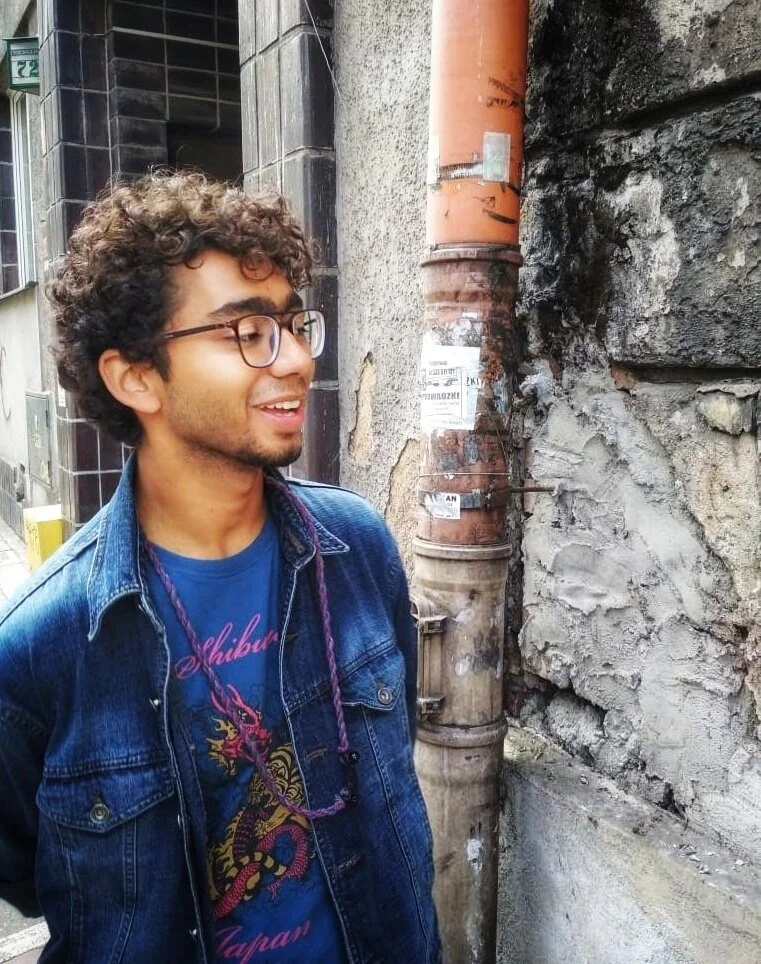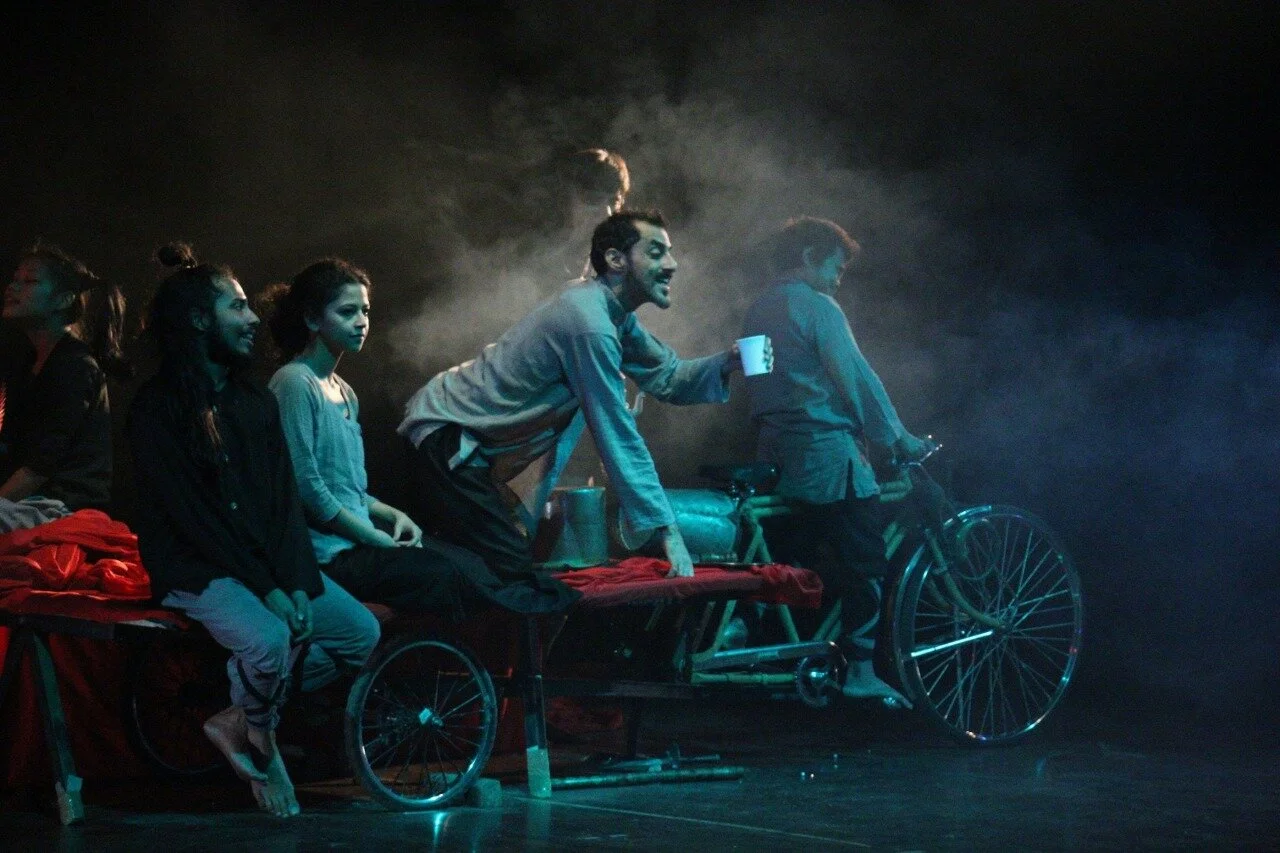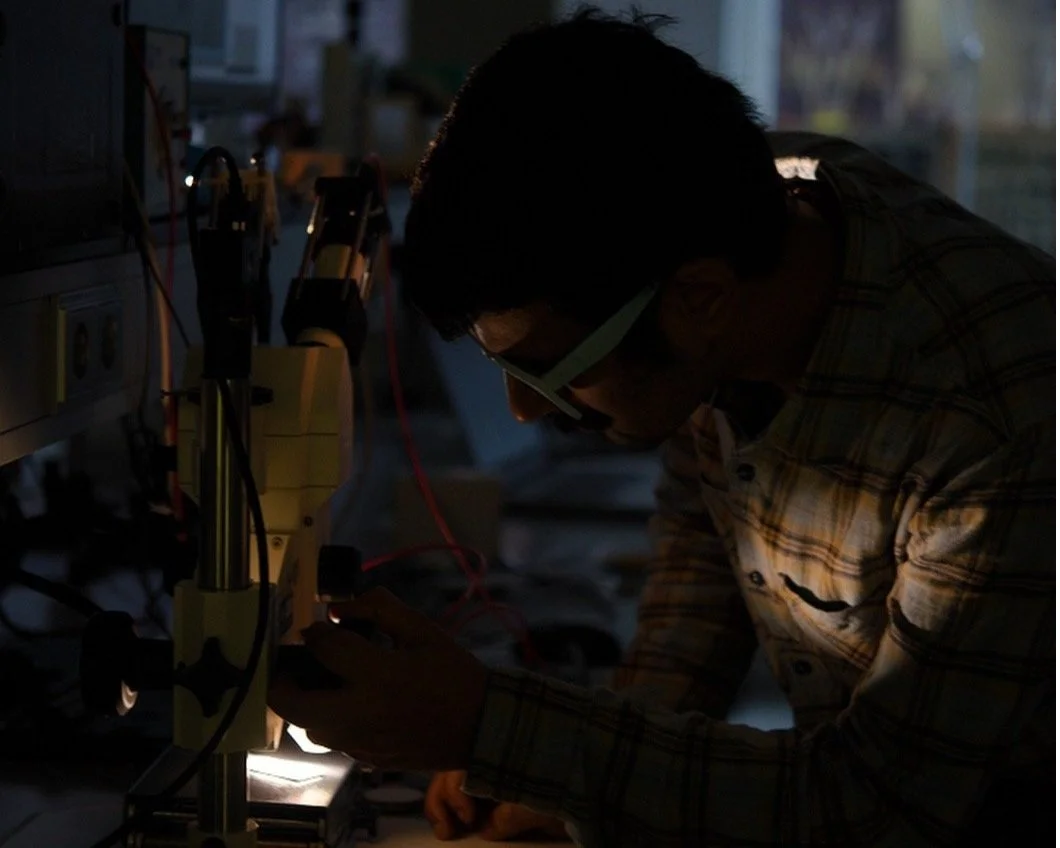Alumnus Update: Shiv Datt Sharma
Shiv Datt Sharma is a 2018 scholar. He has recently completed his degree in Historical Studies with Graduate Certificate in Gender and Sexuality from The New School, New York City.
In this week’s post he shares with us why he chose to study gender studies, the interesting research that shaped his thinking and what it was like to finish his education remotely during the pandemic.
What inspired you to pursue gender and sexuality studies?
I think that one of the things that is most exciting about gender and sexuality as a field of inquiry is that it is profoundly complex. Precisely because our experience of gender and sexuality is so enmeshed with our daily habits, actions and ways of thinking and being, it actually can be difficult to think about them critically. Now we’ve come to understand, thanks to the decades of rigorous and unrelenting feminist and queer scholarship/ activism, that however strong be our personal attachments to gender and sexuality as identity, these are experiences that are equally external to us, shaped by structural, socio-cultural, and historical forces. Many of us now acknowledge that gender roles and preferences are determined by the society around us; moral and constitutional laws often regulate our private desires and sexual behaviour, and so on. This complexity is reflected by the interdisciplinary nature of gender and sexuality as a field of study. It is deeply intertwined with the study of politics, history, literature and arts, and even science, as well as our personal histories. This is what makes gender and sexuality a lively terrain for intellectual work as a mode of political engagement, for a student, writer and scholar like me, who is committed to serious thinking as well as social change. Even as I love the research, teaching and writing part of it, I have conducted several workshops on ground, for NGOs to corporates, and have enjoyed every bit of that experience of having fundamental but important conversations about these issues with people in an open setting. On a more personal note, I studied at an engineering college for my undergrad. Those four years of my life, in addition to the longer influence of growing up in a conservative middle-class context, were full of shocking lessons in understanding how deeply ingrained sexism, misogyny and homophobia are in the way our societies work. That perhaps was a strong catalyst to my involvement in feminist and queer advocacy in Delhi during those years. Eventually, I shifted gears in my career to pursue my interests in gender and sexuality in an academic setting.
What were some of the more curious aspects of your research?
The historical research that I undertook for my Master’s thesis looked at the reinvention of sexuality—as an object of knowledge, as a fundamental “right,” and as an aesthetic experience of freedom, all at the same time—through a variety of twentieth-century practices in the United States. What is really fascinating about this history is that it forces us to suspend our usual habits of thinking and of maintaining rigid distinctions, such as high culture vs low culture, serious science vs popular practices, entertainment vs education, obscenity against valuable arts and literature, etc. I placed and analysed the work of pioneering scientists and professionals such as Alfred Kinsey on a spectrum alongside the popular materials such as the Playboy magazine, and the grassroots movements for sexual freedom. The other very important finding of my research was the way in which sex education was conceptualised within these practices. This was not some sanitized, impractical, pleasure-phobic and biology textbook-like version of sex education, as we mostly find being imparted, if at all, even today. It was radically different. It made use of audio-visual materials, art and artefacts, and even took into account the need for conducive environments and experiential techniques. In fact, here, “sex education” was very interdisciplinary, and was embedded in a broader philosophical, historical and political understanding of sexuality and gender, supposed as part of a progressive cultural training. An interesting part of this were the practices of collecting, curating and exhibiting erotic art and objects, and ultimately, the museum was claimed as a public site where such a sex education could be made available.
How do you believe our notion of sexuality will evolve 50 years from now?
Ha! I think scholars can hardly play the role of a prophet, or even should. But what I can say in relation to this question is that the lesson we learn from history is that it has never been simply a narrative of progress, as we often think. That we are far better in our “modern” societies with respect to everything than our ancestors. And the things can only be expected to improve. Sexuality studies scholars, take, for example, Ruth Vanita and Saleem Kidwai’s works or Madhavi Menon’s book Infinite Variety: A History of Desire in India, have argued that queerness was far less punished in ancient and medieval India, than in our recent history since British colonialism. In fact, the battle against a draconian law such as Section 377 in the so-called “modern” India took nearly two decades. Similarly, it was possible to write a book like Kamasutra in the ancient India, as a philosophical treatise on the conduct of life, alongside other “shastras” on economic and political management. What I am trying to say here is that whatever be the ‘future of sexuality’ 50 years from now, we simply shouldn’t assume that it will be necessarily be a glorious one. Rather, we need to do that work to ensure that we don’t stay stuck in an orthodoxy, moralism, or even phobia about sexuality.
How did it feel to finish your last semester remotely?
Having to move back to India suddenly in March was quite harrowing. Not only was I in the middle of a lot work, I had built a life in New York. And I just had two days literally to wrap and move everything back to India—including a lot of precious books. I experienced, perhaps for the first time so starkly, the precarity of being an international student. I wanted to stay on for longer, but there were so many factors—what will happen to my visa status once it expires at the end of the program, if I am unable to return later? I wanted to see off my wonderful professors and friends, and of course, none of that was possible. I needed to make sure that my stuff will not get lost. But on the other hand, I was worried whether I could contract the disease on the plane, and then, was it safe to return to my parents’ house, who are far more vulnerable to Covid19 than I am, being in the high-risk age group. So, a lot of things. And of course, doing things remotely wasn’t easy and it was so disorienting that life changed so drastically and so suddenly. I couldn’t study or do much productive work at all for weeks after coming back. And now I face the challenge of trying to find employment in the terrible economic situation, as it is currently. That said, I feel thankful every single day for my privileges. We know how severely the pandemic has impacted the marginalised, lower income groups in India. There’s just been so much devastation, and at such a different scale that these personal challenges don’t seem significant right now.
What are your plans for after graduation?
The idea of having a “plan” seems so obsolete right now, but I definitely want to pursue a PhD, going forward. When that will happen depends on how sooner or later things will stabilize around the world. But in the meanwhile, I want to go back to my MA research, which was originally conceptualized as a comparative project between India and the United States. I will continue my research on the recent history of sexuality in India, particularly, in the context of museums and other ways of public (re)presentation and discourse. In addition, I am currently involved in organizing an exciting webinar series called the Summer of ISHQ (ISHQ: Issues in Society, History and Queerness) with the Centre for Studies in Gender and Sexuality at Ashoka University. I hope to be busy with such a combination of research and programmatic/ advocacy work in the next year.








